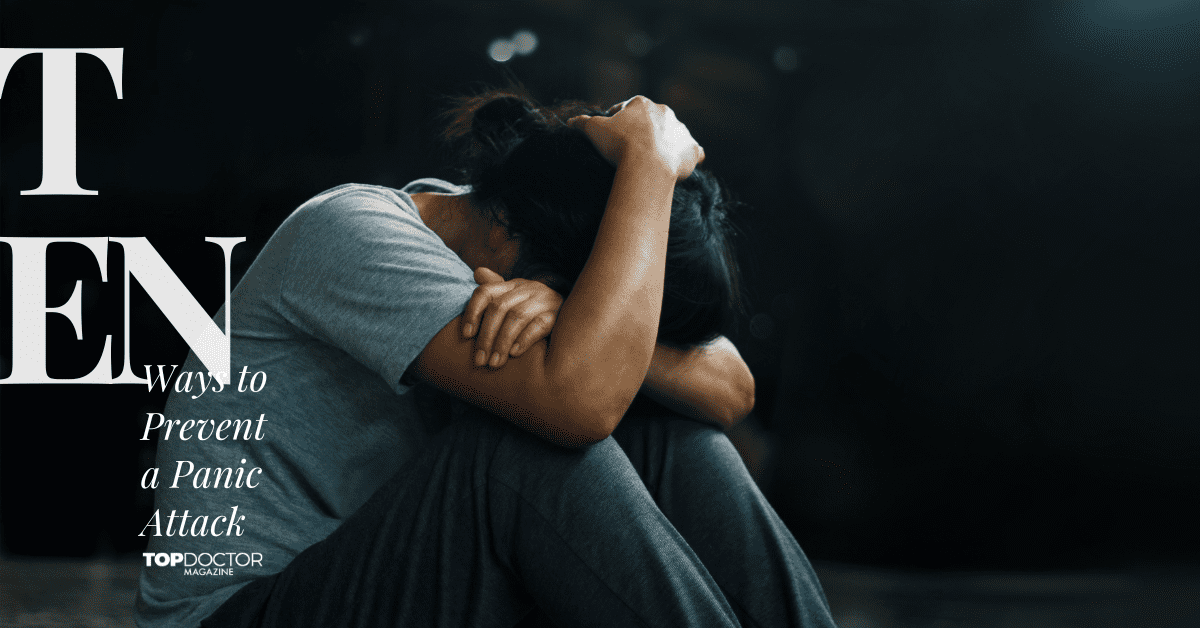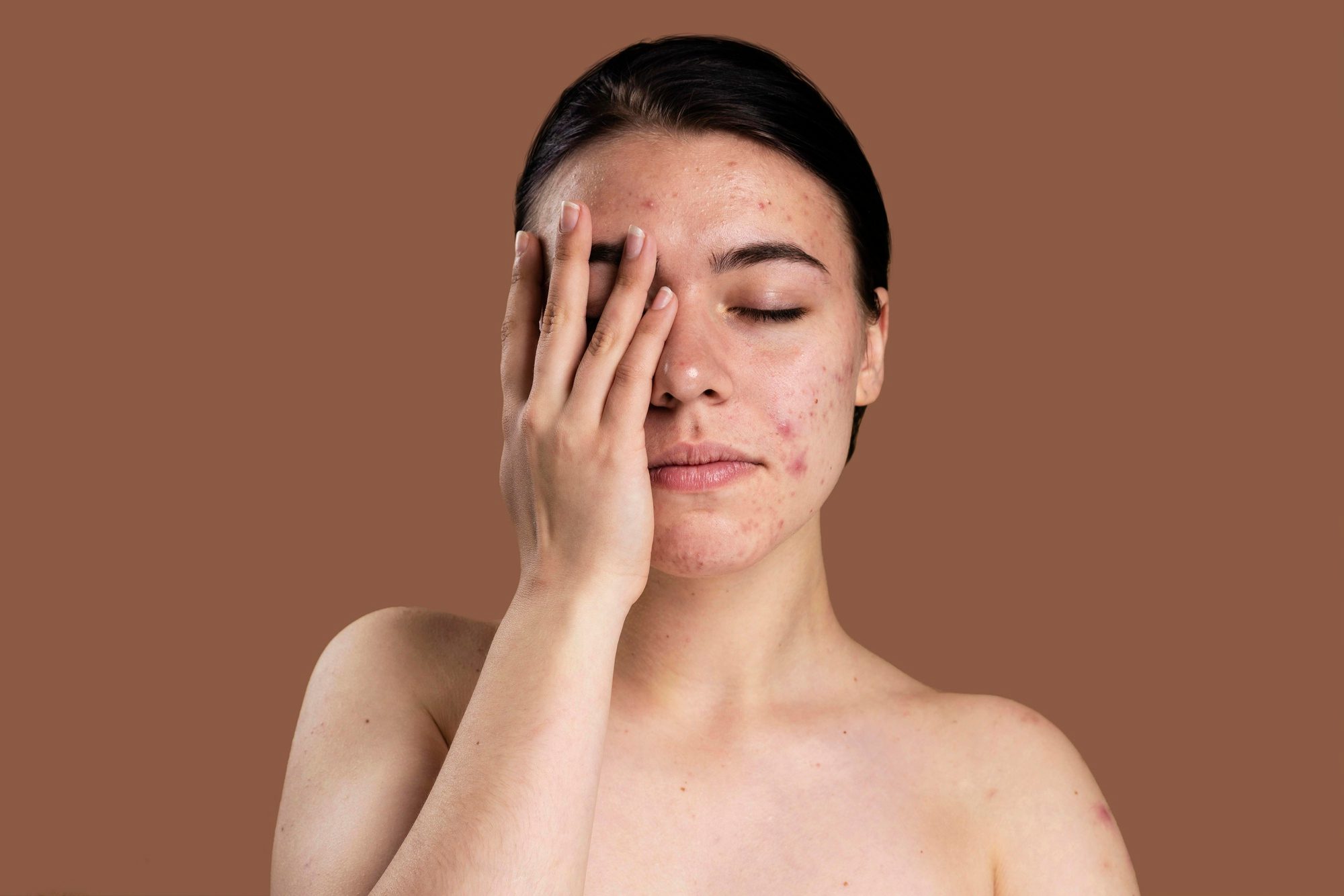A sudden sense of fear, dizziness, sweating, breathing problems and a racing heart – panic attacks are overwhelming and mentally draining. They can leave you powerless for a few minutes before your body returns to its normal state. Struggling with an anxiety disorder is hard enough, but experiencing panic attacks can make things worse.
Fortunately, there are ways to cope with your anxiety and strategies to help you prevent panic attacks. They can at least help decrease the intensity and frequency of panic attacks. It is crucial, however, to consult an experienced mental health professional to create an effective plan to manage your anxiety disorder and panic attacks.
Here are some valuable ways to prevent a panic attack:
1. Identifying Signs of Panic Attack
A panic attack can feel scary but acknowledging it and realizing that it won’t last long may help calm your body. While this can take time and effort to practice, identifying the signs of having a panic attack can help you manage the attack.
Here are some of the common signs that you might be having a panic attack:
- Choking sensation
- Dizziness
- Racing or irregular heartbeat
- Nausea
- Shortness of breath
- Sweating
- Trembling
Panic attacks are usually intense for 10 minutes, and then the symptoms start subsiding.
2. Deep Breathing Exercises
Deep breathing exercises can help you manage the hyperventilating that may occur during a panic attack. Frantic breaths escalate the feeling of fear, which you can manage with deep breathing.
Deep breathing helps lower stress levels and can help you cope with your anxiety and prevent panic attacks. Slow breathing is found to enhance the sensation of alertness, comfort and relaxation while reducing confusion, anger, depression and anxiety.
Try breathing in through the nose slowly and feel the air filling your stomach and chest. Hold your breath for a few seconds. Next, exhale the air through your mouth. Repeat this exercise a few times.
3. Keep Lavender Oil Handy
Soothing scents help reduce stress and anxiety as they tap into your senses and assist in keeping you grounded. They allow you to focus on one thing and stay in the moment. Lavender has been found to enhance the feeling of relaxation and calm, which helps reduce anxiety.
You can keep lavender oil with you and gently inhale or dab it on your wrist when you feel a panic attack looming near. You can also try other essential oils to determine what works best in calming your body.
4. Identify your Triggers
One of the most effective ways to prevent a panic attack and manage your anxiety is to learn to identify what triggers your panic attacks. For instance, issues with money, confrontation, big crowds or enclosed spaces are usually common triggers for many people.
Identifying triggers gives you more control in managing the situations or avoiding them to decrease the chances, intensity and frequency of panic attacks.
5. Make Lifestyle Changes
Your lifestyle can also have a significant impact on your anxiety and panic attacks. It is important to identify the areas that increase your anxiety and stress and find ways to change them or avoid them. For instance, consuming a balanced diet, reducing your intake of caffeine or alcohol, staying hydrated and getting sufficient sleep can enhance your overall health and help prevent panic attacks.
6. Practice Muscle Relaxation Exercises
Muscle tension is another primary symptom of panic attacks and anxiety. Therefore, practicing muscle relaxation methods may decrease this tension and enhance relaxation. Regular practice helps in releasing the stress from group muscles, allowing you to relax your body.
If you feel a panic attack coming, practicing muscle relaxation techniques can allow you to control the response of your body better. A muscle relaxation technique usually includes the following methods:
- Learning ways to tense your muscles before relaxing them
- Relaxing the muscles without first tensing them
- Relaxing a group of muscles, like legs or shoulders
- Rapid relaxation by identifying areas of the body that are tensed and then releasing the tension
You can start practicing by focusing on one small muscle, like your finger, to tense and relax your muscles. Once you get a better idea, you can move on to other muscles in your body. This trick is helpful if you have been regularly practicing and can identify a panic attack coming. This allows you to start using this technique to prevent a panic attack.
7. Move More
Going out in nature for a run or a walk, or finding other ways to move your body, like dancing, can be an effective way of relaxing your body and clearing your head to prevent a panic attack. Heading outside also allows you to absorb vitamin D, which can enhance satisfaction and revitalization while reducing depression and anger.
8. Get Professional Counseling
The best way to prevent panic attacks and cope with your anxiety is to consult a professional and certified therapist and get the right counseling you need. Cognitive Behavioral Therapy (CBT) has been found to be an effective way of treating and preventing panic attacks.
9. Practice Mindfulness
Mindfulness is a practice that can help individuals ground themselves. Panic attacks create a feeling of separation or detachment from reality. Therefore, mindfulness practice can help you combat the symptoms if you feel a panic attack approaching.
Mindfulness helps you to focus on the present, identify your mental and emotional state, and decrease stress through meditation.
You can practice mindfulness by focusing on different physical sensations around you, like feeling the texture of your hand or clothes or your bare feet on the cool floor or sand. These sensations can help you stay in the present and cope with symptoms of panic attacks and anxiety.
Mindfulness therapy has also been recommended for individuals with anxiety disorders receiving medical treatment but hasn’t found the right treatment that helps.
10. Take Prescription Medication
Your therapist or doctor can give you prescription medications to help you prevent and manage your panic attacks if they are severe. These medications work by calming your nervous system and reducing the intensity of the panic attack or preventing them altogether.
It is essential to understand that medication can be potentially addicting since they are controlled substances. Therefore, always use them after consulting your doctor, and in the dosage, they recommend to prevent further issues.
Wrapping Up
While dealing with an anxiety order and managing panic attacks can be draining, being mindful and practicing these useful tips and help you in lowering the intensity. However, if these tips are not working for you and the panic attacks are frequent, it is important that you consult a mental healthcare professional immediately.
Getting the right help can ensure you find better ways to deal with your anxiety symptoms without your anxiety or panic attacks interfering with your routine. A professional can guide you in identifying your triggers, prescribing medications and establishing the right therapy to help you manage your mental health.
Anxiety might stay in your life, but it shouldn’t overtake everyday activities. There are multiple ways to manage the symptoms and the anxiety. However, a professional therapist can recommend the best treatment after conducting an assessment. It is important to seek help to improve your life and overall wellness.
At TopDoctor Magazine, our mission is to foster connections within the health and wellness community, acting as a vital bridge between doctors and patients and facilitating collaborations between medical companies and healthcare professionals.
Our purpose extends to empowering our readers, providing them with the knowledge to make well-informed healthcare and lifestyle decisions.
We take pride in being the ultimate resource for interviews with health and wellness leaders, delivering trending medical news, and covering a wide range of healthy living topics.






0 Comments